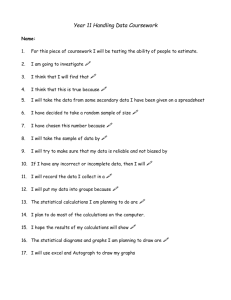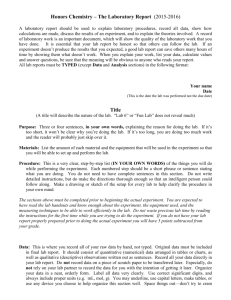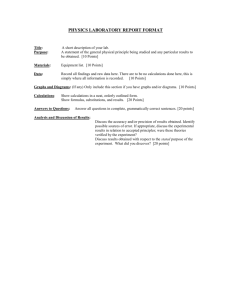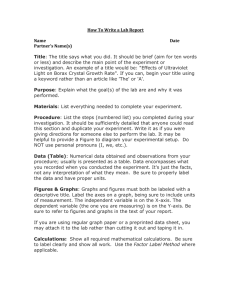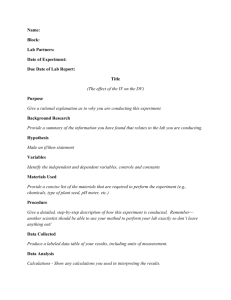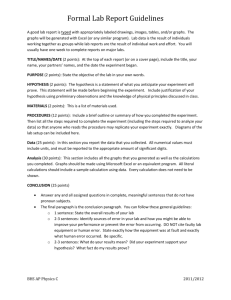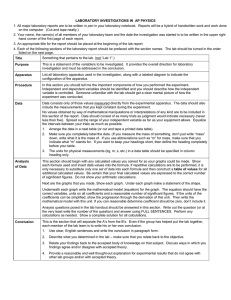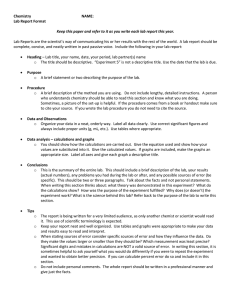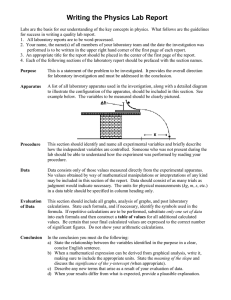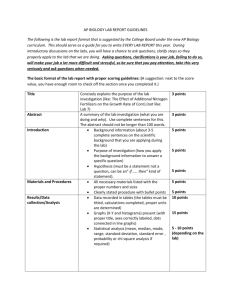Physics Lab Report Outline: Guide for Students
advertisement
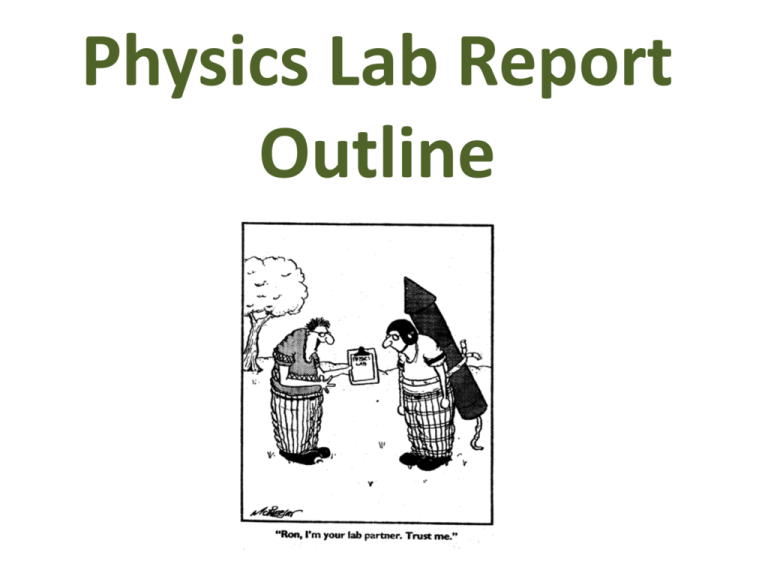
Physics Lab Report Outline • Investigations are done in pairs / groups of students • Each student must submit their own report • The experimental procedure should be read over before the investigation class • All data collected during the investigation must be written on a data sheet, which includes your name, partner’s name, date and all completed data and/or qualitative observations • Data sheets must be attached to the submitted lab report. 1. Title Page • • • • • The title Your name The name (s) of your partner The date the experiment was performed The name of your teacher 2. Purpose • State briefly what you are going to investigate or study (one or two sentences should be enough) • State what you hope to find (it is expected that) 3. Apparatus • A short list of major items needed and used to do the experiment • In most cases, record the model and serial number of your equipment for future reference or equipment checks 4. Procedure • Generally it is enough to state “Refer to text, pages ….” • A diagram of the experimental set up is included (hand drawn or computer generated, with all parts labelled) • Diagrams should be numbered “Figure #” and should have a title 5. Observations • In a neat and concise form, present your data and/or qualitative remarks on what you observed. • It is not necessary to provide a table of data if the information also appears in a graph • When using graphs or tables, give them titles, units and reference numbers so that later you can say “Table 4” or “Graph 3”, etc. • Be sure to label the axes of all graphs, with variables and units 6. Calculations • Show how you obtained answers predicted in your purpose – get comfortable with ‘Insert Equation’ • Define all variables • Do not write out the same calculations more than once…show once and list the rest For example: Where d is the distance, in m v is the speed, in m/s t is the time, in s Sample Calculation v = 5.2 m/s t = 10.0 s d=? d = vt d = vt d = (5.2 m/s)(10.0s) d = 52m 7. Error Analysis • What were the sources of error in your experiment? • How do your results compare with accepted values? Percent measurement error = measured value – accepted value accepted value • How would you improve the experiment? 8. Conclusion • • • • Sum up the procedure in 1 or 2 sentences Answer the purpose State your final result(s) and your percent error Do not introduce new facts here 9. Discussion • Answer the discussion questions using full sentences • Be sure to explain “why” for every question • Feel free to look for answers in your textbook and on the internet, but be sure to reference where they came from Reminders • NEVER use point form • A non-science person should be able to read your lab report and get a good idea of what you did and what you found…make it appropriate for all audiences • The wrong answers are just as much a valuable learning experience as the correct ones • When in doubt…ASK!!
